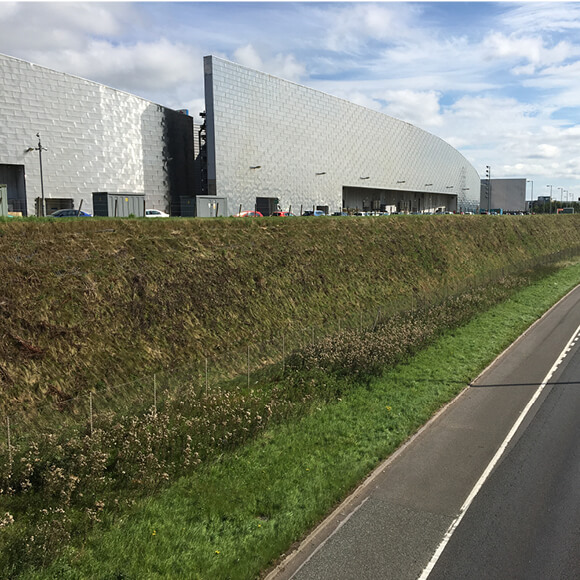
Steep Reinforced Earth Slopes
The natural choice for steep slope stabilisation & construction
Earth retaining walls or steepened slopes are vital for the reinforcement of slopes where maximum developable area must be maintained, or where there are abrupt level changes. If space doesn’t necessitate vertical walls, steep reinforced earth slopes and geogrid slope stabilisation offer attractive ‘green’ alternatives at considerably lower cost.
Tensar specialises in reinforced soil or mechanically stabilised earth (MSE) systems and offer various methods of slope reinforcement dependant on the degree of the face angle. Steep reinforced earth slopes with a face angle up to 70° can be stabilised by incorporating reinforcing geogrids laid horizontally back from the steep slope face in layers, helping to add support to the structure. The strength, spacing and length of the geogrids will depend upon the slope angle, fill material properties and any surcharge loading.
Tensar’s design software TensarSoil enables optimisation of slope reinforcement design to suit your project needs.

What is slope stabilisation?
Slope soil stabilisation is the process of improving the stability of an existing unstable slope, or prevention of instability in new slopes. This ensures that the slope has a sufficiently high Factor of Safety to support loads that are applied to it. Slope stabilisation can be accomplished through a variety of methods, including the use of earth retaining walls and soil reinforcement solutions.
Soil reinforcement explained
Soil reinforcement improves the stiffness, strength and bearing capacity of soils using geotechnical engineering techniques. Historically natural fibres were used, however now mechanically synthesised fibrous materials such as geosynthetics (including geogrids) are used to improve land where chances of erosion are high.
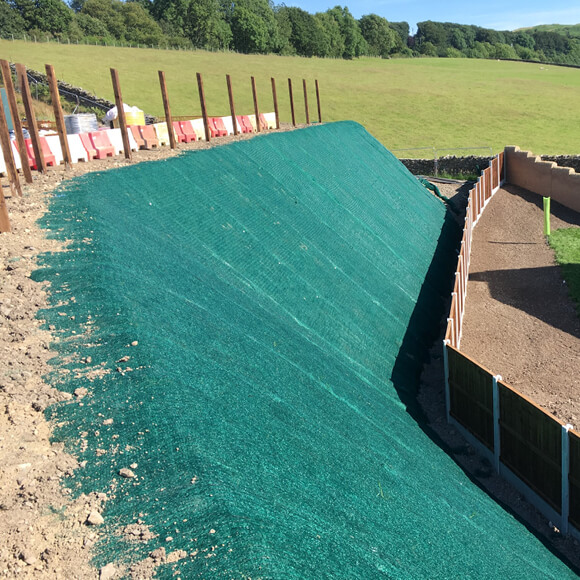
Slope Reinforcements up to 45° Face Angle
Slopes with a face angle up to 45° can be stabilised by incorporating Tensar geogrid slope stabilisation methods. Our reinforcing geogrids will be laid horizontally back from the slope face in layers. The strength, spacing and length of the geogrids will depend upon the slope angle, fill material properties and any surcharge loading. No structural facing components are usually required, which allows the face to be trimmed back to the final batter. In some cases an erosion protection mat may be installed, before seeding or planting to establish vegetation.
The TensarTech Natural Green slope reinforcement system is quick and simple to install, requiring no specialist skills. By incorporating topsoil zones behind the face structure in the design, a ‘green’ face is possible using selected plants suited to the local conditions to create a fully vegetated face.
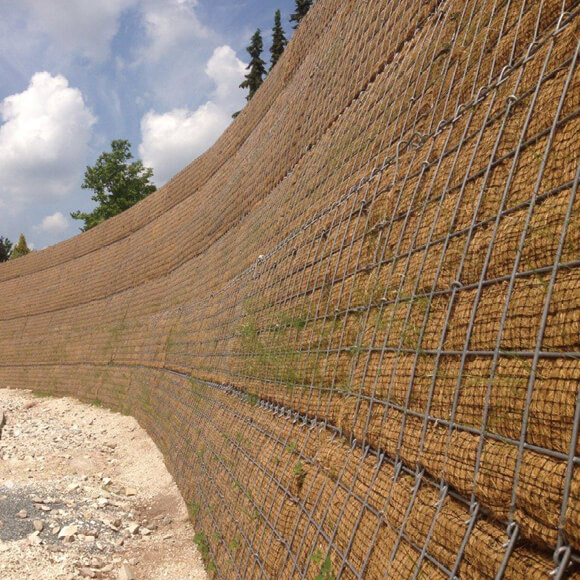
Slope Reinforcements up to 70° Face Angle
Steeper reinforced earth slopes, with a face angle up to 70° require support at the face as well as internal stabilisation. The TensarTech GreenSlope system uses soil reinforcement geogrids for slope stabilisation, securely connected to system-specific welded steel mesh facing components. As a fully integrated slope reinforcement system, TensarTech GreenSlope structures are easy to install, and the modular nature of the system enables rapid construction using non-specialist skills, in most cases without the need for heavy lifting equipment or external propping.
The wide base of the reinforced earth slope means bearing pressure is low and foundations are often unnecessary, significantly reducing costs by as much as 70% compared to concrete retaining walls. Costs can be further reduced by the use of locally available backfill materials – including recycled and site-won materials.

Benefits of TensarTech Slope Stabilisation Systems
TensarTech Earth Retaining Systems offer long-term, proven design stability, with a design life of up to 120 years. Their simple construction reduces cost and build times, can use site-won materials for structural fill and offers reduced foundation requirements – in some cases, requiring no foundation required at all.
Our reinforced slope stabilisation systems also provide aesthetically appealing, ‘green’ facing options, using selected planting to suit local conditions and including easy creation of complex or curved geometry. Additionally, most systems require neither crane lifts nor temporary propping, and they offer high resistance to dynamic and seismic loading.
TensarTech’s easy-to-install reinforced earth slope systems use a combination of soil reinforcement geogrids securely connected to facing components. Using Tensar’s highly durable geogrid slope reinforcement reduces costs by using backfill materials – including cohesive soils, recycled and site-won materials.

Slope stabilisation methods
Common slope stabilisation methods include the use of geometric, hydrological, chemical and mechanical techniques. The type of slope stabilisation used to shore up the soil will depend on the geotechnical, construction and ecological requirements of the project in question.
Other considerations when choosing an appropriate slope stabilisation method include the cost and design life of the project. Tensar’s reinforced soil and MSE systems can deliver effective retaining wall systems and slope stabilisation solutions, offering flexibility, resilience, and cost savings that alternative MSE systems can't provide.
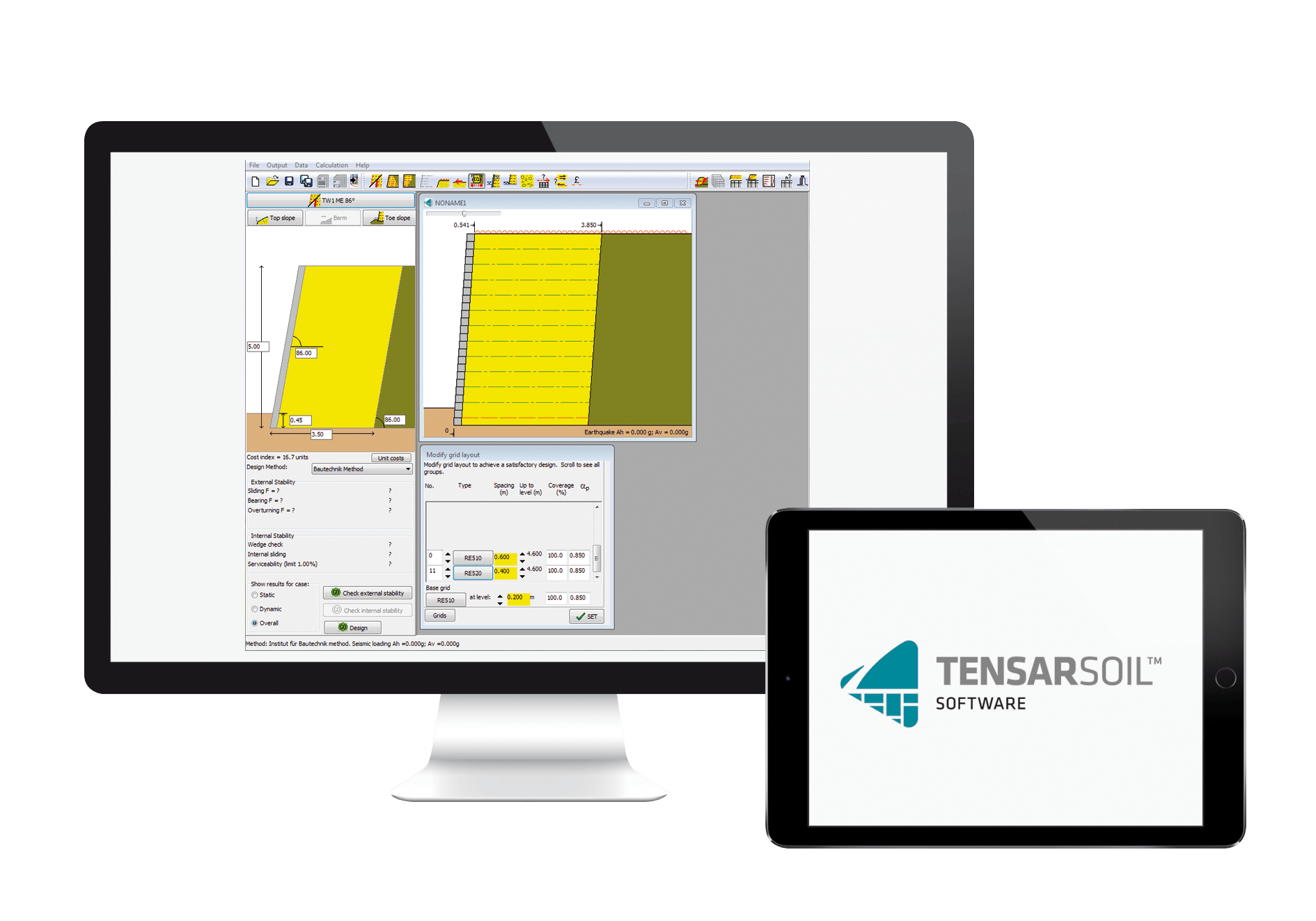



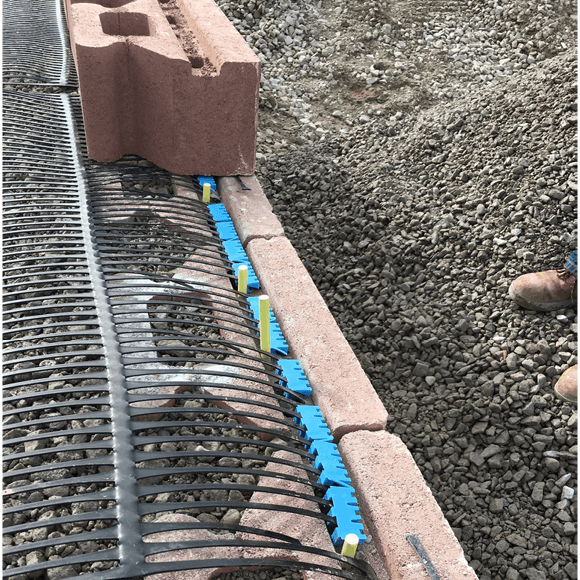
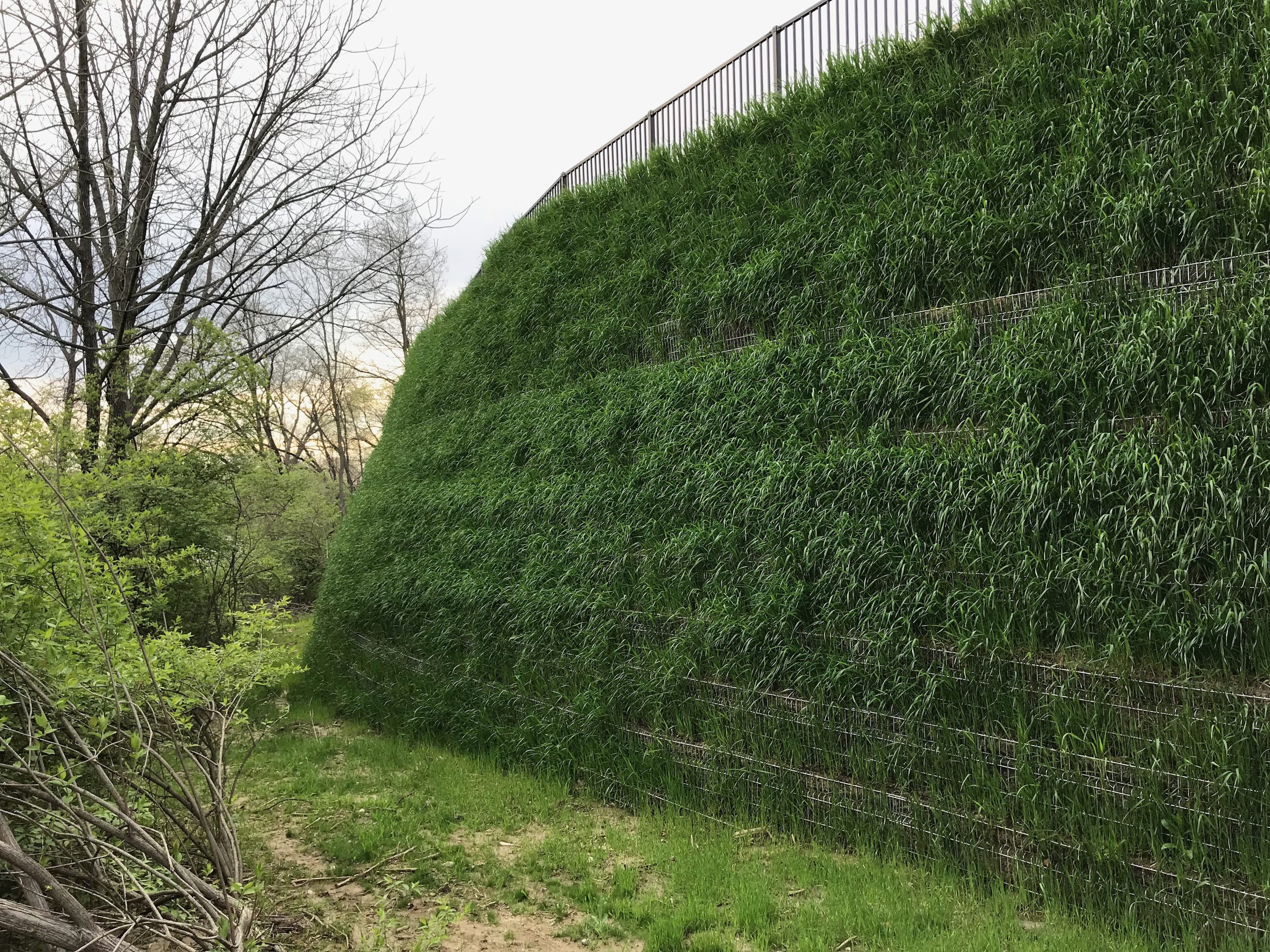
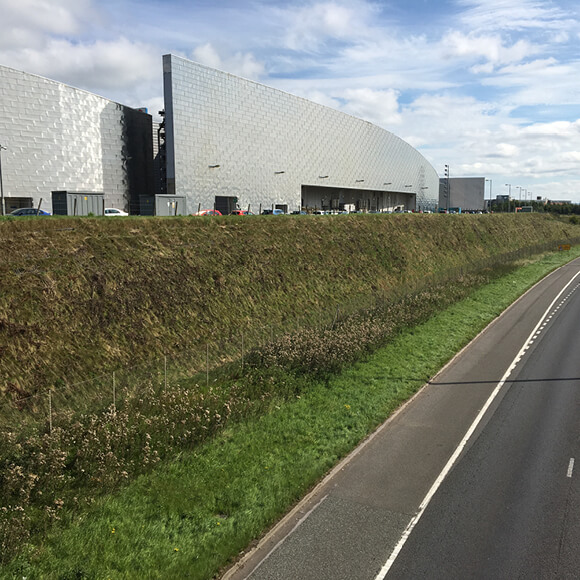
.png)